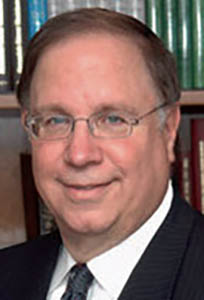

Articles about Israel frequently mention the term nongovernmental organizations (NGOs), which play an inordinate role in shaping the way Israel is portrayed in the media. Few people know why NGOs exist, how they function, the underlying motivation of each organization or how they are funded.
The UN uses the term to differentiate between government institutions and private organizations. An article published by Harvard University Law School described some of the positive contributions NGOs have made: the collapse of apartheid regime in South Africa, the overthrow of the dictatorship in Chile, the political revolution in the Philippines, the demise of the Communist governments in Central Europe;, the establishment of an international treaty outlawing land mines and the creation of an international criminal court.
Gerald M. Steinberg, the president of NGO Monitor, which documents questionable funding and actions of many Israeli NGOs, explains that NGOs are established ostensibly to focus on human rights and legal, environmental and media issues. Those involved in Israel have clear political agendas, with legal NGOs using lawfare having the most profound influence.
The NGOs are in the vanguard of the organizations demonizing Israel such as BDS and Breaking the Silence and promoting anti-Semitism. In their reports and public statements, and with their clout in the UN, the media and the academic and diplomatic world, many NGOs misrepresent facts to advance their objectives without any external accountability.
Lawfare is a weapon used in U.S. and European courts to initiate civil law suits and criminal investigations to thwart Israel’s ability to fight terror by accusing her of “war crimes” and “crimes against humanity.” Brooke Goldstein, director of the Lawfare Project notes, “The object is as much to win a public relations victory as a court case.”
By framing political attacks in legal terms, Steinberg and Anne Herzberg, NGO Monitor’s Legal Advisor, assert that NGOs attempt to create “a veneer of credibility and expertise for their claims. Since 2001, this process has repeated itself numerous times—Jenin in 2002, the ICJ [International Court of Justice] case against Israel’s security barrier in 2004, the 2006 Lebanon War and the 2010 Gaza flotilla.”
Lawfare strategy was formulated at the NGO Forum of the 2001 UN Durban Conference, which marked Israel as a “racist, apartheid state” responsible for “genocide” and “war crimes,” and demanded “the establishment of a war crimes tribunal” and other actions against this renegade state.
According to Herzberg, NGOs directing lawfare are the Palestinian Center for Human Rights (PCHR), the Ramallah-based Al Haq and the Center for Constitutional Rights (CCR) in New York. A number of European governments also fund these suits, including the European Union, as do the Ford Foundation, George Soros’s Open Society Institute and others. Many of the court cases are filed in the countries that have financed the organizations.
A number of NGOs have thousands of members and multi-million dollar budgets. Local and regional NGOs like Al Mazen, the PCHR, Physicians for Human Rights-Israel and LAW are mostly led by supporters of the Palestine Liberation Organization and share their goals. The Ford Foundation, the New Israel Fund, USAID, Christian Aid and the Advocacy Project are among institutions providing significant funds and technical support to NGOs.
B’Tselem, Israel’s largest and foremost NGO, is unrelenting in attacking Israel for alleged human rights abuses in Judea and Samaria. B’Tselem’s prime objective, warns Noah Pollak, executive director of the Emergency Committee for Israel, is “not to convince Israelis to change their policies from within, but rather aiding international efforts to pressure Israel to adopt the kind of policies Israelis themselves have repeatedly rejected in elections.”
NGO Monitor reports that B’Tselem’s supporters include “the European Union, Human Rights and International Law Secretariat (joint funding from Sweden, Switzerland, Denmark and the Netherlands), DanChurch Aid (Denmark), Catholic Relief Services (US), Norway, the Netherlands, Christian Aid Ireland, Diakonia (Sweden), Bread for the World-EED (Germany), ZIVIK (Germany), France, UK, UNICEF, UNDP, the Ford Foundation [and] the New Israel Fund.”
During Operation Protective Edge, Israel’s military operation in Gaza during July and August 2014, Steinberg found that NGOs assisted the media in presenting a distorted narrative, by providing information through “ubiquitous” publications. NGO allegations were highlighted in hundreds of articles and repeated by decision makers. B’Tselem played a significant role in this process.
Few journalists, UN officials and diplomats questioned the accuracy of these “facts” or how they were obtained. Steinberg concluded that “most NGO statements did not comport with ethical and legal fact-finding principles; exhibited severe bias and double standards; lacked legal, forensic, and military expertise; gave minimal attention to Israeli human rights; and ignored or justified Palestinian abuses.”
NGO superpowers with budgets in the tens of millions of dollars, such as Human Rights Watch, Amnesty International and the International Federation of Human Rights (France), have supported these efforts by providing publicity, organizing demonstrations and issuing reports produced as legal briefs to coincide with court hearings.
After Israeli Justice Minister Ayelet Shaked proposed legislation to end European government- financed NGOs, curtail the absence of transparency among those funding the NGOs, opponents of the bill charged the government of trying to restrict free speech, and stifle valid criticism. Steinberg responded that “legislation to counter efforts by a small number of influential and unaccountable groups financed by foreign governments to impose their opinions and preferences on Israel is hardly undemocratic.”
When sponsoring programs promoting Israel, such as the annual Israel Day Parade, American Jews might consider the implications of granting legitimacy to NGOs and other groups that seek to undermine the Jewish state by including them in their events.
By Alex Grobman, PhD
Alex Grobman, a Hebrew University-trained historian, is a consultant to the America-Israel Friendship League, a member of the Council of Scholars for Scholars for Peace in the Middle East (SPME) and a member of the Academic Council of The David S. Wyman Institute for Holocaust Studies.









